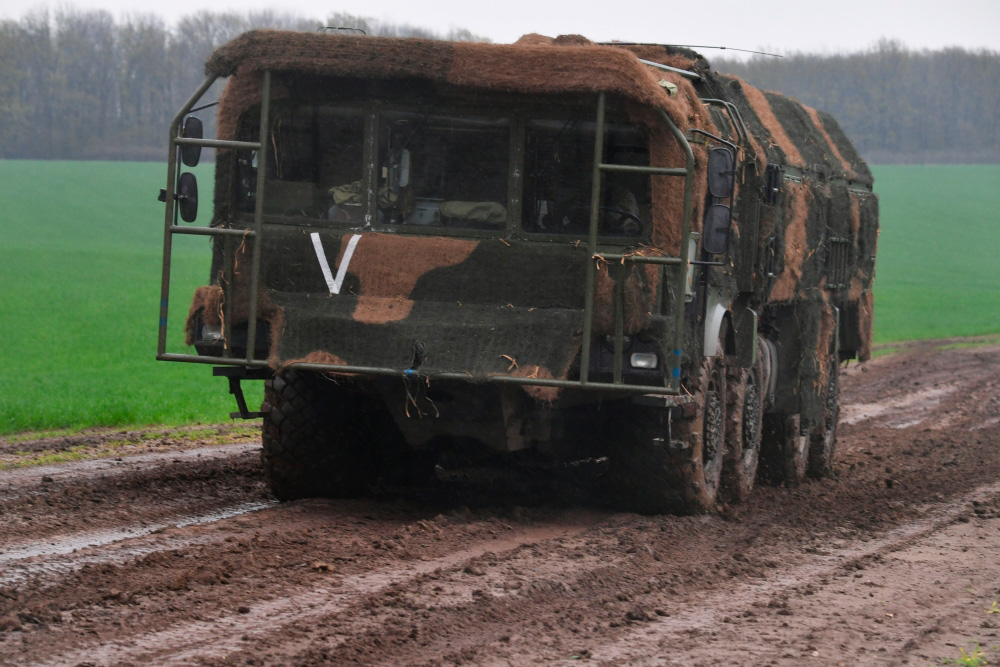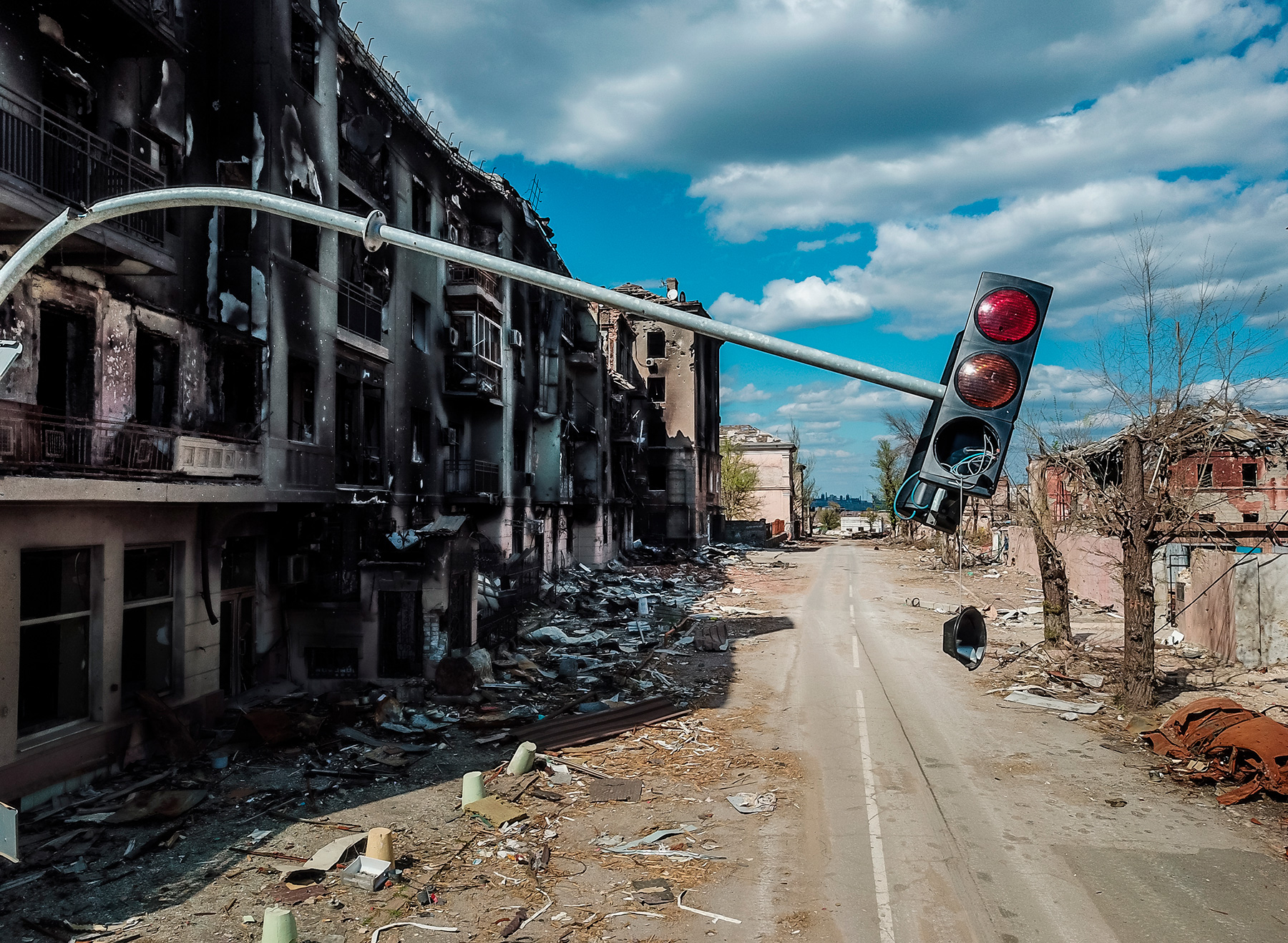There are quite a few things in common, as well as differences between the Cuban missile crisis of October 1962 and the present crisis between Russia and the West.
Now it is a crisis engineered by the US at Russia’s doorstep with Moscow holding the advantage of the scene close to its territory. So, now is Russia’s turn to go emotional/ballistic. It is more than a purely military threat (US biolabs in Ukraine, creeping NATO presence etc), but also a threat to our identity, culture and history. In mid-XIXth Century Fedor Tyutchev, a diplomat, poet and philosopher, coined this maxim: “By her very existence Russia negates the West’s future”.
The West’s policy of containment of Russia over the past 30 years, however irrational, proves that the Western elites equally believe the conflict to be existential. Russia’s otherness has become unbearable, and a final solution is in the order of the day through military or strategic defeat, regime change or dismemberment. It is them or us, free at last to decide for ourselves or shackled by the system where we hold no stakes.
The present-day geopolitical reality differs from that of 1962. Multipolarity is taking root with the rest of the world treating the conflict as a regional or European family affair. Two front war is on the horizon for the US, given the imperative of further and harder containing China. Germany tried that scenario twice and both times failed to manage.
So, unlike the Cuban affair which was a geo-strategic event of limited consequence, the present crisis is a complex geopolitical event of vast consequences drawing a line under three centuries of the Western global domination and the relationship of containment with Russia. It is a transition from one geopolitical order to another, which will take time or will evolve fast as all the endgames do. In any case one may expect some complex post-Cold War settlement taking place sooner or later.
There are quite a few things in common, as well as differences between the Cuban missile crisis of October 1962 and the present crisis between Russia and the West.
Now it is a crisis engineered by the US at Russia’s doorstep with Moscow holding the advantage of the scene close to its territory. So, now is Russia’s turn to go emotional/ballistic. It is more than a purely military threat (US biolabs in Ukraine, creeping NATO presence etc), but also a threat to our identity, culture and history. In mid-XIXth Century Fedor Tyutchev, a diplomat, poet and philosopher, coined this maxim: “By her very existence Russia negates the West’s future”.
The West’s policy of containment of Russia over the past 30 years, however irrational, proves that the Western elites equally believe the conflict to be existential. Russia’s otherness has become unbearable, and a final solution is in the order of the day through military or strategic defeat, regime change or dismemberment. It is them or us, free at last to decide for ourselves or shackled by the system where we hold no stakes.
The Cold War was the way to freeze this conflict through arms control. Then it was the pre-arms control era, now is the post-arms control time, probably post-non-proliferation and even post-TBT.
Then the US went public as a leverage, now we have done the same with no option of falling back. Then the crisis cried for a diplomatic solution within a limited time frame, now both sides play for time with no agreed solution in sight for it is about a drastic change of track in Russia’s national development, its exit from the system, dominated by the West. This system has become a straitjacket for us and so has to be diminished or destroyed. That is why Russia needs an outcome that is definitive, irreversible and undiminishable, whatever it takes. That can only be accomplished unilaterally.
The partial mobilisation creates a more complex societal reality in Russia which absorbs the existing differences of opinion and life styles, the society at war turning into a broader church. There are other vast and critical differences.
Playing for time means double-downs vs double-downs with the two sides in the escalatory competition till they decide that an all-out nuclear war shouldn’t be fought after all. The West’s latest, that is the sabotage of the gas pipelines in the Baltic, creates a precedent and opens up the avenue for war on critical infrastructure at sea beyond international borders in addition to the total economic warfare.
It has to be kept in mind that the battlefield nukes were created for a war in Europe, that is to avoid strikes against US and Russian territories, and thus prevent an all-out nuclear war. It still holds true in case of direct confrontation between Russia and NATO.
Since Moscow has been borrowing freely from the US strategising kit, including deterrence and brinkmanship, one may imagine that both sides will use “surges” as their exit strategies. There is no precedent of such a double, which makes the development utterly unpredictable. Who will have the last word or laugh? The one for whom it is more existential than for the other? Or is it, overall, another fatal strategy in response to a banal one?
It is not a bilateral conflict this time. Russia is facing a collective West with the EU more harmed by the sanctions’ blowback, to the point of its economic destruction which happens to be a source of America’s re-industrialisation (a position similar to that of Japan in the past 30 to 40 years). So, it is sort of cannibalism time within the West. The previous administration was by far more honest in that regard.
The present-day geopolitical reality differs from that of 1962. Multipolarity is taking root with the rest of the world treating the conflict as a regional or European family affair. Two front war is on the horizon for the US, given the imperative of further and harder containing China. Germany tried that scenario twice and both times failed to manage.
So, unlike the Cuban affair which was a geo-strategic event of limited consequence, the present crisis is a complex geopolitical event of vast consequences drawing a line under three centuries of the Western global domination and the relationship of containment with Russia. It is a transition from one geopolitical order to another, which will take time or will evolve fast as all the endgames do. In any case one may expect some complex post-Cold War settlement taking place sooner or later.






